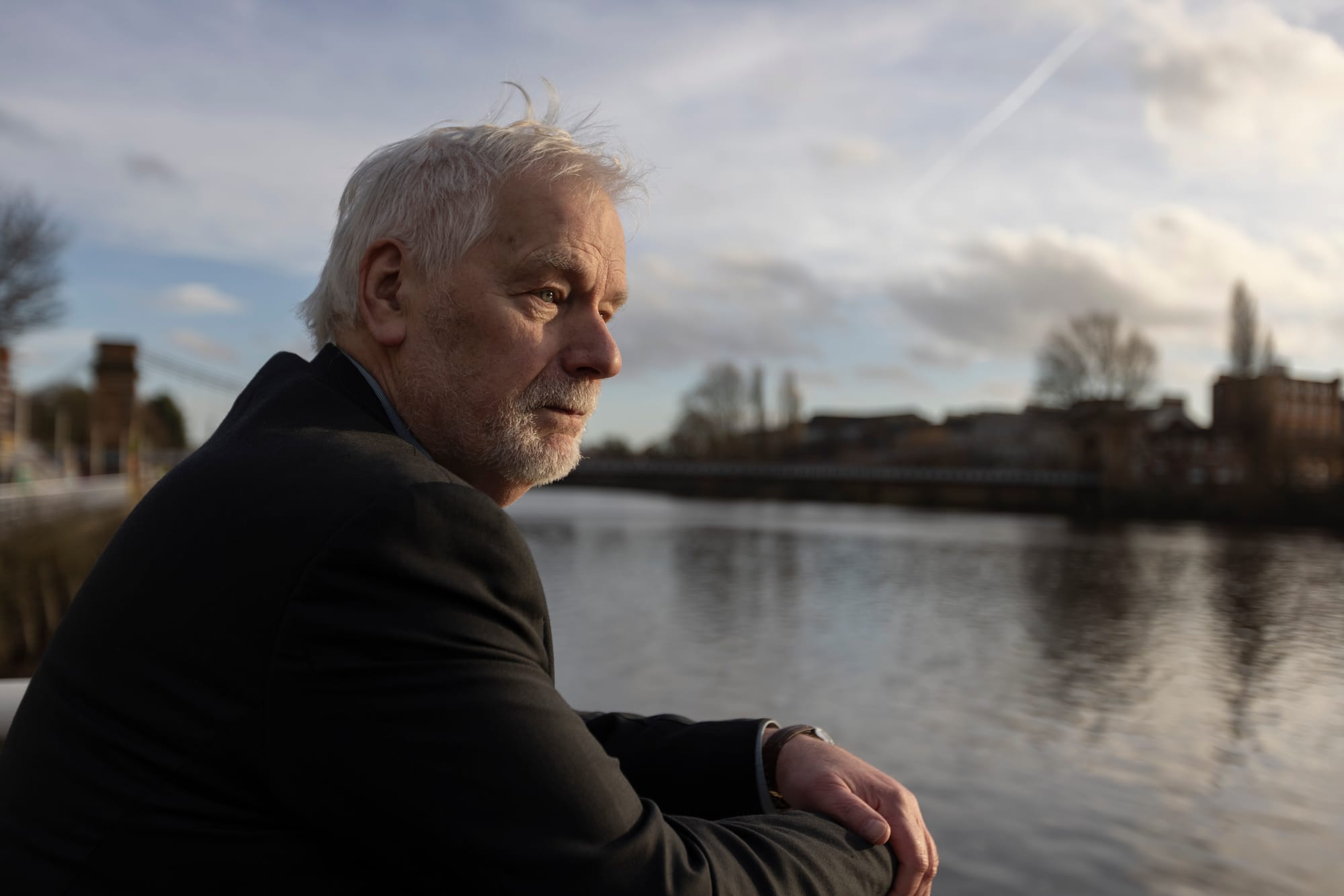The BBC Weather app had cautioned snow across much of Scotland’s Central Belt on a frigid Saturday afternoon last November. What it didn’t mention was the putrid grey slush that had rapidly congealed across the entirety of Glasgow city centre. I’d arrived into Queen Street on a spectacularly delayed train from Stirling, a journey which had passed with some trepidation. Not only was it unclear whether the train would make it into Glasgow at all, but one by one, the interviewees I was due to meet had begun to steadily cancel due to the inclement weather.
All was not lost, came the reassuring text from Willy Maley, the highly popular historian and recently retired Professor of English at Glasgow University. Jammed motorways and abandoned rural buses had done for Jennie Renton and Tam Watters, two of his three co-authors on ‘Our Fathers Fought Franco’, their 2023 book. Alongside Lisa Croft, the trio document their descendents' colourful exploits as International Brigaders, the name given to the thousands of volunteers who poured in from around the world to fight the forces of fascism led by General Franco during the Spanish Civil War.
The plan had been for us to meet at Maley’s flat out west in Hyndland’s sprawling red bricked respectability. Now, he counseled, I could take my time. No need to rush, as it would just be me and him. Trudging miserably across Sauchiehall Street, I reflected that excess speed wasn’t likely to be the main issue of the day.
On arrival, I was greeted by Maley, a genial white haired figure in his mid-sixties, and his wife Dini, who took my sodden coat and ushered me inside. As Maley and I settled down in their comfortable living room, the conversation turned to his recent trip to The General Archives of the Spanish Civil War in Salamanca, northwestern Spain, home to several documents pertaining to his late father James, a committed lifelong communist who left Glasgow to fight in Spain in 1936. He had spent several months as a prisoner of war following his capture after the disastrous Republican defeat at the Battle of Jarama, a few miles east of Madrid in February 1937. “I said to my brother, look, we should do this… We took the train from Madrid and hadn’t booked anything ahead. It was a totally remarkable experience. A remarkable day,” Maley beamed. “It was beautiful, the kind of archive presentation you don’t really get in the UK, unless it’s the British Library. And certainly not in Glasgow,” he laughed.
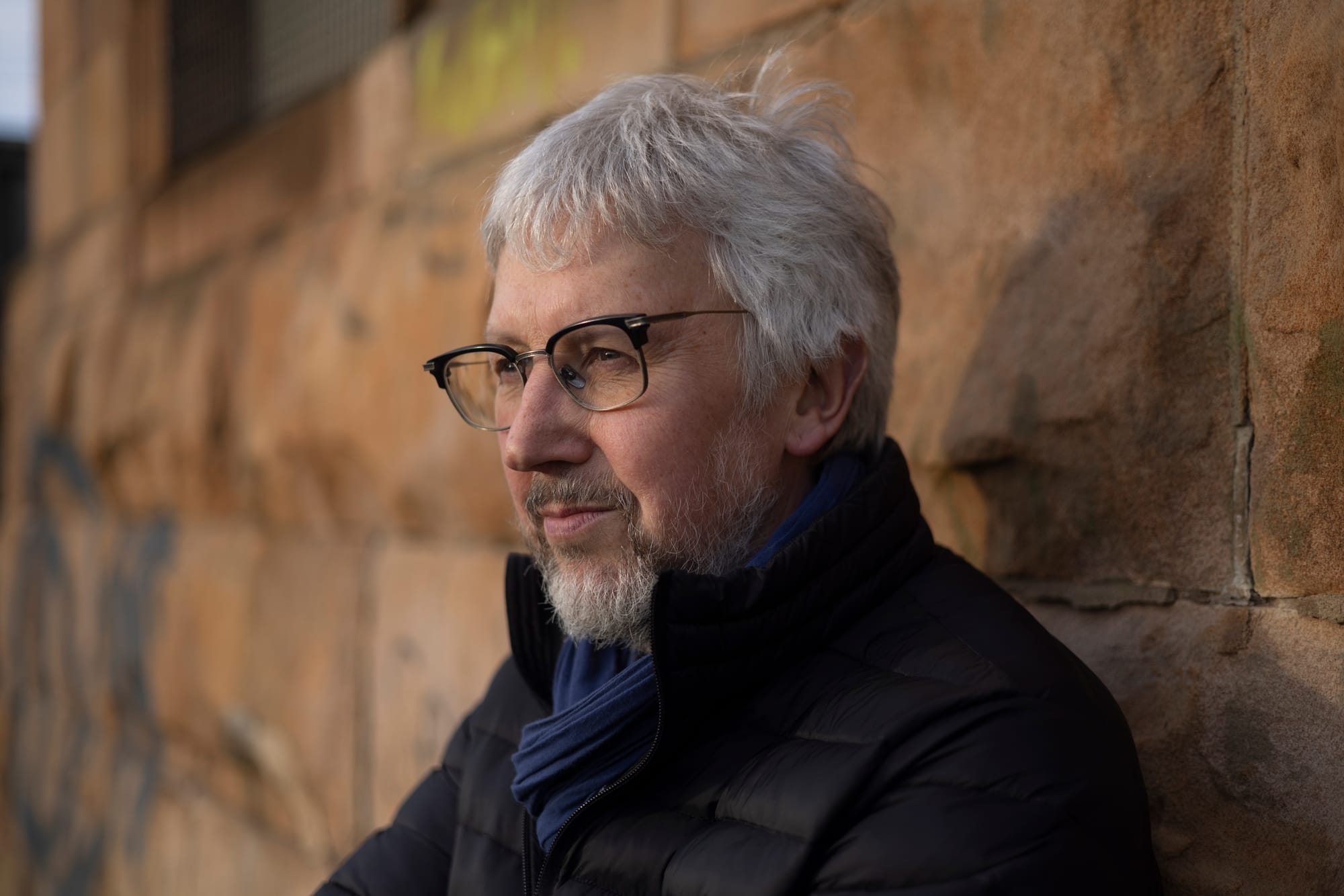
In the early 1990s, Maley and his brother John had penned a play, ‘From the Calton to Catalonia’, as tribute to James Maley and the hundreds of Scottish volunteers who signed up to fight in Spain. If the broad outline of the Civil War — when an attempted rightist coup d’etat against Spain’s left-leaning Republican government in 1936 led to a titanic struggle between ascendant fascism and a doomed coalition of progressive forces — is well known, this strand of its history has remained comparatively underexplored. Scots made up over twenty percent of the British volunteers in the International Brigades (and of the 534 British fighters killed, 12% were Glasweigian). No other nation, the historian Daniel Gray writes in his 2009 book ‘Homage to Caledonia: Scotland and the Spanish Civil War’, could match that proportion.
Many, like James Maley, hailed from the East End of Glasgow, then a crucible of radical left wing political ferment. His early upbringing in the Calton was, he reflected many years later to an interviewer from the Imperial War Museum’s oral history archive, not for the faint of heart. “It was [a] rough […] rowdy area” he said, marked by unemployment and poverty. Maley’s radicalism set in early. Times were harsh. Born 1908, the fifth of nine children, he was out to work at 14. By his teens, he had decided that “religion was the opium of the people, and the Labour Party was the enemy of the people”. After a brief stint in the US, James Maley returned to Glasgow. In December 1936, he left for Spain, determined to fight for the Republican cause. He joined Machine Gun Company 2 of the British Battalion of the International Brigades and was captured just two months later.
Willy Maley had long harboured an ambition to combine his father’s story with those of other Scottish International Brigaders. “I had an idea for a sort of mass biography for people whose fathers or grandfathers had fought in Spain. It was in 2011 that Lisa Croft got in touch”. Croft, a retired library assistant from Lancashire, had contacted Maley with an intriguing scrap of information. Her grandfather, AC Williams, born 1904 in Portsmouth to Scottish parents, had joined the same battalion as James Maley and been imprisoned alongside him, following capture at the Battle of Jarama. Croft’s mother, Rosemary Nina, was born while Williams was in prison. Two years later, Maley met Tam Watters, a retired coal miner and camera salesman from Prestonpans, East Lothian. His father Geordie, also a coal miner, had become a Communist Party member in the early 1920s, before joining Machine Gun Company 2 just in time for the Battle of Jarama.
Jennie Renton, an Edinburgh-based second hand bookseller and occasional journalist, was already known to Maley. Her father Donald, born 1912, was raised in Portobello, the Edinburgh coastal suburb. When his father died in his early teens, Renton left school to work as an apprentice painter and decorator, though was sacked soon after for using company paint to daub pavements with political slogans. By seventeen, he had become a committed communist. As the 1930s ground on, he took on a leadership role in the National Unemployed Workers’ Movement. Renton travelled to Spain in 1936 as a political commissar. He was shot in the leg at Jarama and spent several long months incarcerated with the other three men. Eventually, the quartet was transported to Salamanca, prior to their release in a prisoner swap in late 1937.
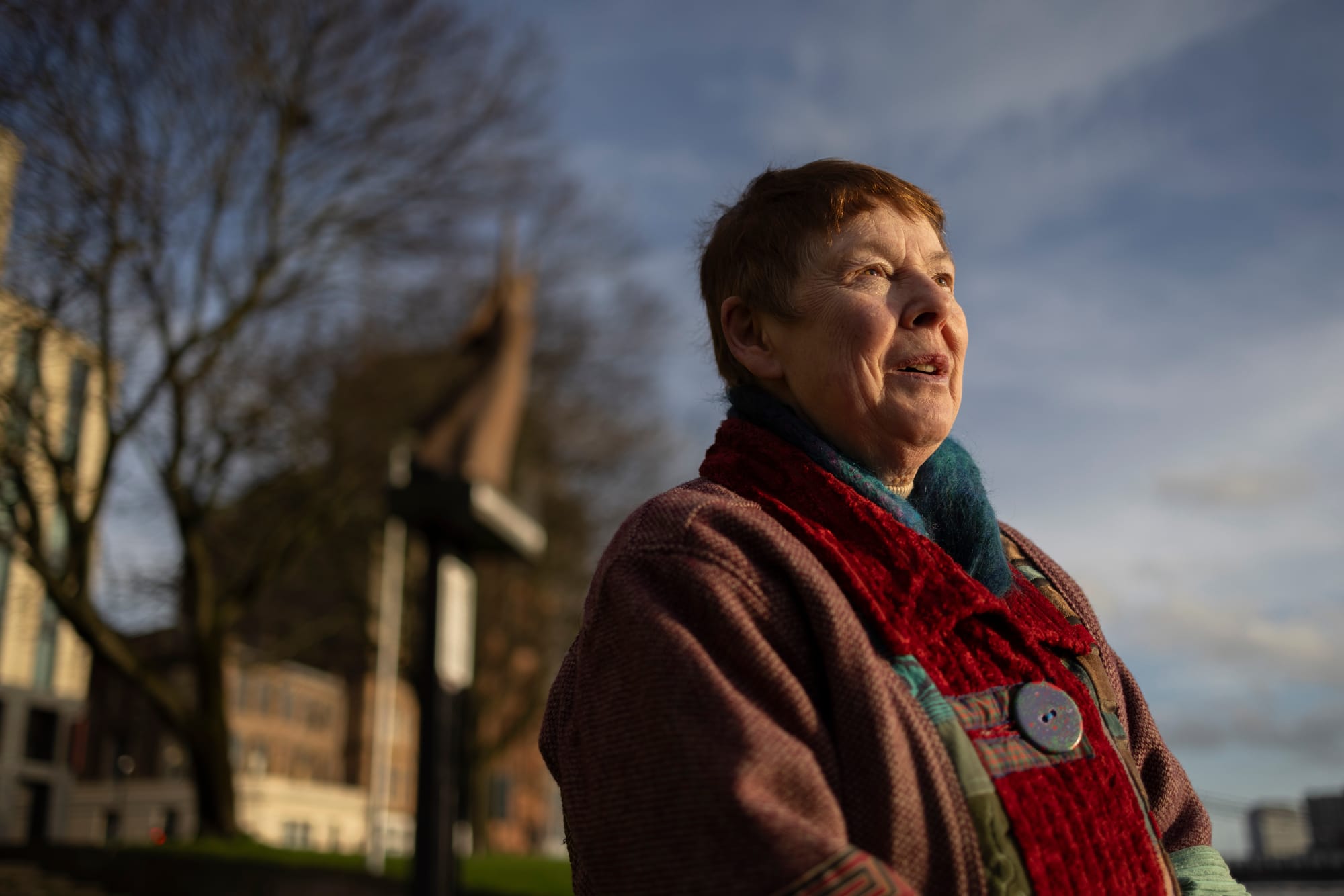
‘Our Fathers Fought Franco’ came about through these “minor miracles”, as Maley described them to me. The idea was simple enough. Maley, Renton, Watters and Croft would each contribute a chapter on their forebears, blending archival research with personal reminisce. Despite differences in temperament, the men were linked by more than just shared captivity. They were, as Maley writes in the chapter on his father, part of a highly distinctive generation. Products of the 1920s and 1930s, their rise to political maturity was marked by the Hunger Marches, widespread economic depression and the rise of facism. They were voracious readers and staunch internationalists: self-taught autodidacts who never abandoned their Communist convictions.
They were also occasionally difficult men, often reluctant to speak about their experiences in Spain, whether from modesty or more inscrutable reasons. Jennie Renton had a particularly chequered relationship with her father. “What I secretly yearned for,” she writes, “was a dad who was at home more, who spent time with me, who had a job that paid (instead of being a Communist Party organiser)”. When I spoke to Renton in December, she told me that it had taken some time to commit to the project. “It was complicated on an emotional level. Difficult, delicate stuff to talk about really. I do think my dad was heroic, but I didn’t just want to write about the heroism of it”. The reality of battle and captivity was squalid and violent, with occasional elements of grim slapstick, such as when British and Irish troops were rescued from total wipeout at Jarama “only by the chance discovery of some machine gun ammunition, which their commanders had neglected to provide”.
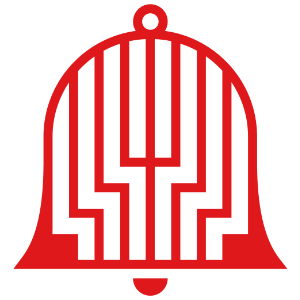
I first met Willy Maley by chance in May 2023. I’d been booked to speak at Aye Write, the Glasgow literary festival. At a loose end, I leafed through the programme, looking to fill my evening. Amid the crush of broadsheet columnists and cosy crime writers, one event stood out. Our Fathers Fought Franco, promotional copy promised, was a newly published work of collective biography examining the lives and legacies of four Scottish International Brigaders, who had been captured and ended up in the same prison cell in a converted factory in Talavera de la Reina.
My interest was immediately piqued. As chance had it, I was halfway through reading ‘A People Betrayed’, one of several monumental works on the conflict by Paul Preston, Professor of International History at LSE, considered one of the preeminent scholars of modern Spanish history and politics. There were more personal reasons for my enthusiasm. In late 2021, I had reconnected in spectacularly unlikely fashion with my late father’s family in Andalusia, following a twenty year estrangement. A discussion of a book that mingled a sweeping overview of the Spanish Civil War with highly personal family history could not have been more precisely engineered to my tastes.
At the packed out event, I was particularly struck by Renton, a softly spoken woman in her sixties, who reflected on her father’s lifetime of extraordinarily intense political commitment. The late Donald Renton — census occupation “full time communist agitator”— was described as a figure of maximum velocity, integrity and ideological consistency. Whether or not he was always the easiest husband or father, well, that was a different question.
Lisa Croft’s testimony was equally clear-sighted. Her grandfather had lived a life of scarcely believable adventure, with stints as a North American ranch hand and roving political organiser. Neither had it lacked for pain and estrangement. As a young emigree in Canada, he had worked as a clerk in a bank near Toronto. Following a fire at the premises, he stole a $500 bill. His devastated mother never spoke to her son again. Williams joined the International Brigade in 1936, following years of economic insecurity and his marriage to Jane Orme Fetherstonehaugh, the upper class, if cash poor, secretary of an East London branch of the National Unemployed Workers Movement. Returning from the war, the couple spent much of their adult lives under sporadic surveillance from MI5 due to their unrepentant communist beliefs. AC Williams died in Renfrewshire in the late 1970s, where he and his wife had settled a decade before.
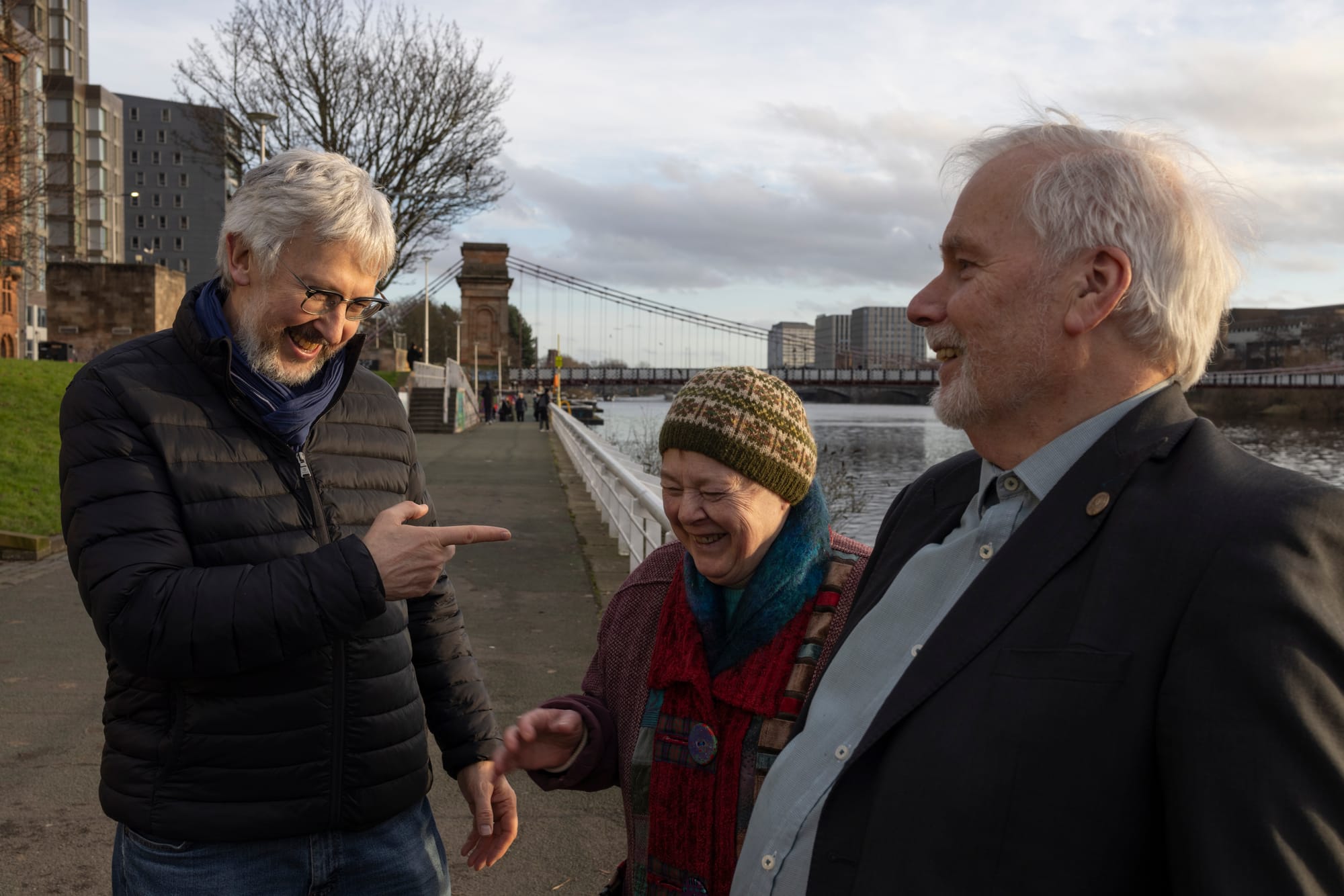
The groundedness of these reflections came as a relief. I’d worried that the event might tip into schmaltz; certainly, a musical interlude from an acoustic guitar strumming troubadour, belting out ancient songs of solidarity had not filled me with confidence. At the Q and A, Maley responded to a mildly hectoring question — just a comment really — on the apparent oddness of Maley’s father, a Glaswegian man of Irish Catholic descent, going to fight for the godless socialists. Well, Maley responded with disarming good grace, it was just a little more complicated than that.
Over the following weeks, I found my thoughts continually drifting back to that evening. Soon, my copy of the book was covered in barely legible notes. If the four authors differed in style — Renton and Tam Watters are the most lyrical, while Maley is more purposefully austere —they each shared an unsentimental warmth. Maley describes his own father — who died in 2007 aged 99 — as a difficult interviewee. Not least because of the speed of his “machine gun” speech and relentless desire to focus on the present, rather than the past. “He [also] had a habit of falling out with people and maybe this is why he never seemed to be included in rolls of honor”.
Watters writes about the aftermath of a talk his father had given to the Edinburgh Young Communist League in the mid-1970s. Having dropped Watters senior home, the young cadres had stopped to chat with Tam. Though they considered Georgie Watters a great man, they mused that it couldn’t be easy being his son. Tam had reacted with cheerful bemusement. “They thought he was a disciplinarian. This made me laugh. As a long-haired, unemployed young man in the early 1960s, I always got to do what I wanted and dressed the way I wanted”. He writes that his father never hectored him about politics and only ever gave one piece of unsolicited advice. When Tam communicated his decision to become a coal miner, Geordie told him he did not agree, based on his own long decades of experience.
I spoke to Tam Watters on the phone a month ago. He described himself as a lucky man. Not everyone in life could be fond of their father, but he had adored Geordie. As a young man, Watters told me he’d only a shaky grasp of his father’s experiences of the conflict in Spain. “He often spoke of his admiration for others, never himself. Honestly, he didn’t think we’d be interested”. Tam had started writing with a deceptively simple question. What had led his father, who died in 1980, to Spain? His political commitments had crystalised early, due to the appalling poverty and exploitation he saw at home. Watters was proud of his father’s bravery. When Willy Maley sent him a short Pathé News clip of their fathers during their imprisonment in Salamanca, Watters says it was one of the most powerful moments of his life. “To see my father standing in that hell-hole… was emotional in the extreme”.
If you're reading this and you haven't yet joined our free mailing list, click here to get Glasgow's new quality newspaper in your inbox every week.
Much changed in the intervening 18 months between my first reading of Our Fathers Fought Franco and the afternoon I spent at Maley’s flat in November 2024. The book was proving to have a spirited afterlife, with events across the UK, including one I attended at Portcullis House, Westminster, hosted by the All-Parliamentary Group for Catalonia. During one of my occasional bursts of email correspondence with Maley last year, he relayed some bad news. He had been diagnosed with advanced metastatic prostate cancer in the summer of 2023 after 16 months of symptoms. Though treatment was keeping the cancer at bay, the prognosis was not good.
After a glittering 30 year career at Glasgow University, he retired last autumn to an outpouring of warm reminiscences from ex-colleagues and students. His spirits, he assured me during my recent visit, were as high as ever. The Maley family have never really done weepy. “We’re a generally unsentimental crowd. With my father, you didn’t want to be seen as mawkish. He didn’t have time for it”.
There was something else I couldn’t quite shake, which had been floated during the end of the Glasgow event. The legacy of the International Brigades was not just an abstract historical curio. In 2022, the Spanish parliament in Madrid had passed legislation allowing their descendants to apply for Spanish citizenship, under Article 33 of the newly introduced Democratic Memory Law. This development has been strongly contested, with the legacy of Francoism remaining a desperately divisive topic in contemporary Spain. Following the dictator’s death in the mid-1970s, much of the nation’s political class backed the grandly named Pact of Forgetting, an attempt to delay or sidestep a reckoning with the legacy of the Civil War and following decades of repression and state violence.
The past, ran the broad brushstrokes of the argument, was the past: building the democratic future was what mattered. Reality was never likely to conform so neatly in regards to a notoriously brutal conflict in which hundreds of thousands of Spaniards were killed and millions displaced. The Pact’s clearest legal expression was the 1977 Amnesty Law, which allowed the freeing of political prisoners and mass return of exiles, as well as impunity for those who committed atrocities during the war, or the following forty years of fascist rule.
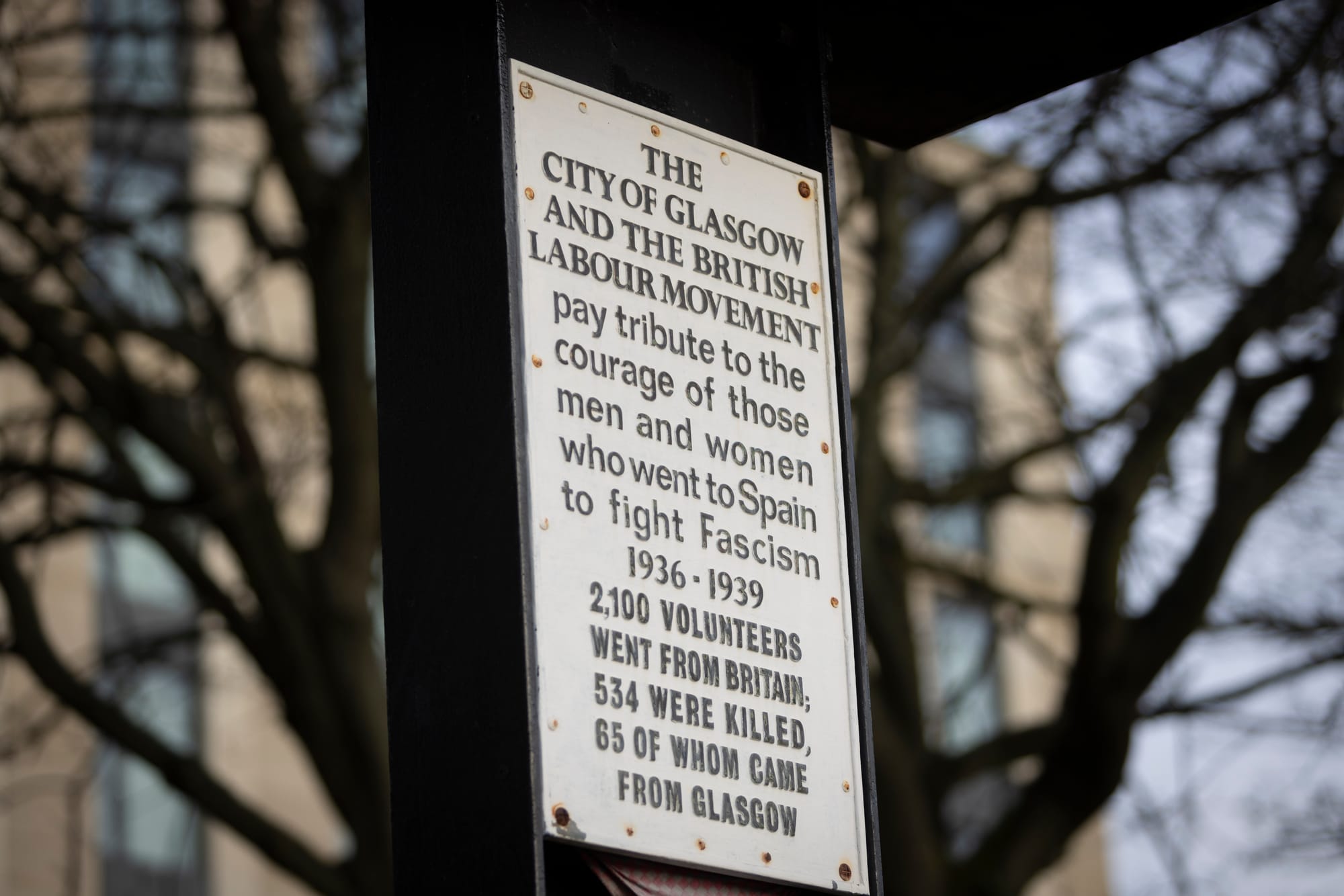
This uneasy status quo was challenged by the Spanish Socialist Workers’ Party government elected in 2004. The Historical Memory Law passed into the statute books three years later, to significant opposition from conservative politicians of all stripes, who argued it amounted to little more than long delayed vengeance. Despite this bluster, its provisions were mild enough, including a condemnation of the Francoist state and limited rights for the descendants of its violence and repression.
When the conservative Popular Party took power in 2011, the new law was mostly ignored, or treated as an embarrassing folly. Though no serious attempts were made to repeal it, controversy was generated by the decision to halt state funding for the exhumation of mass graves dating from the Civil War and subsequent White Terror during the first decades of Franco’s rule. In 2020, the socialist administration led by Pedro Sánchez announced the Democratic Memory Law, beefing up existing measures and promising citizenship to the descendants of Brigaders and the children of exiles from the Franco era.
Despite his pride, Tam Watters says he will not be applying for Spanish citizenship, though his niece was looking into it. Although grateful for the gesture, his own support for the Catalan independence movement renders such a commitment to the Spanish state out of the question. Lisa Croft’s reasons are more prosaic. “The forms are all in Spanish and it's expensive”, she laughs when we speak in early January. Before Christmas, Jennie Renton surprises me with the news she is in the process of putting together the application. “It’s an honor. And you know, it could evaporate at any time”. Her words are prophetic.
A week or so into 2025, Renton emails over a press release from a Madrid based organisation helping process applications. It was of great concern, they had written, to see that each of the 166 currently submitted applications had been frozen in bureaucratic limbo. It was with a heavy heart they recommended a pause on any new applications. “It isn’t the end of the world if it doesn’t work”, Renton had said when we’d spoken in December. “I’d still like to go to Madrid and hand over the paperwork”.
As for Maley, he says he’s satisfied with his Irish passport, having acquired it through descent a few years back. To have visited Salamanca with his brother was special. So was finishing ‘Our Fathers Fought Franco’. “My father was vehement in his beliefs. He spoke fast and not always in the King’s English. I felt that he never really had a hearing during his lifetime. To have given him that, it feels very healing”.
This article was amended on January 18 to correct the fact that 534 British fighters were killed, rather than Scottish as had originally been stated.
Comments
How to comment:
If you are already a member,
click here to sign in
and leave a comment.
If you aren't a member,
sign up here
to be able to leave a comment.
To add your photo, click here to create a profile on Gravatar.






